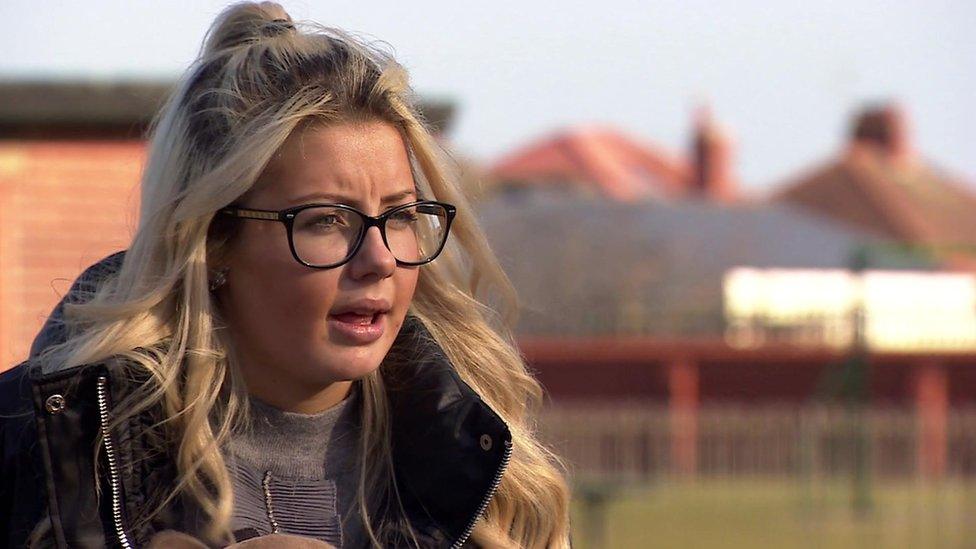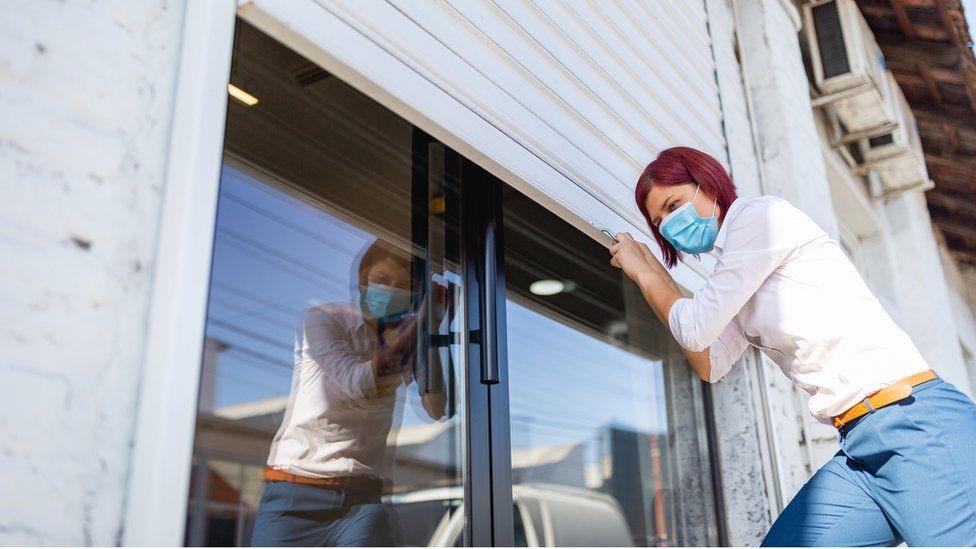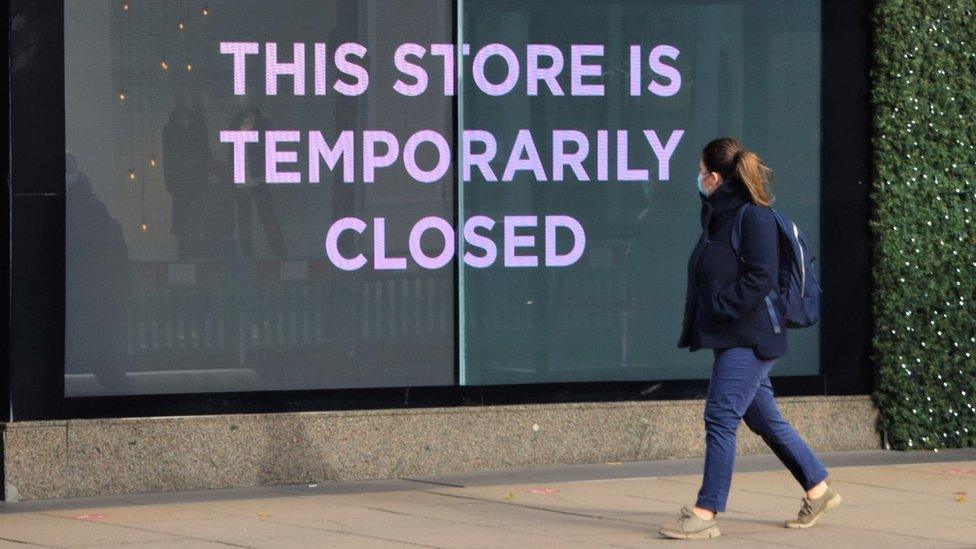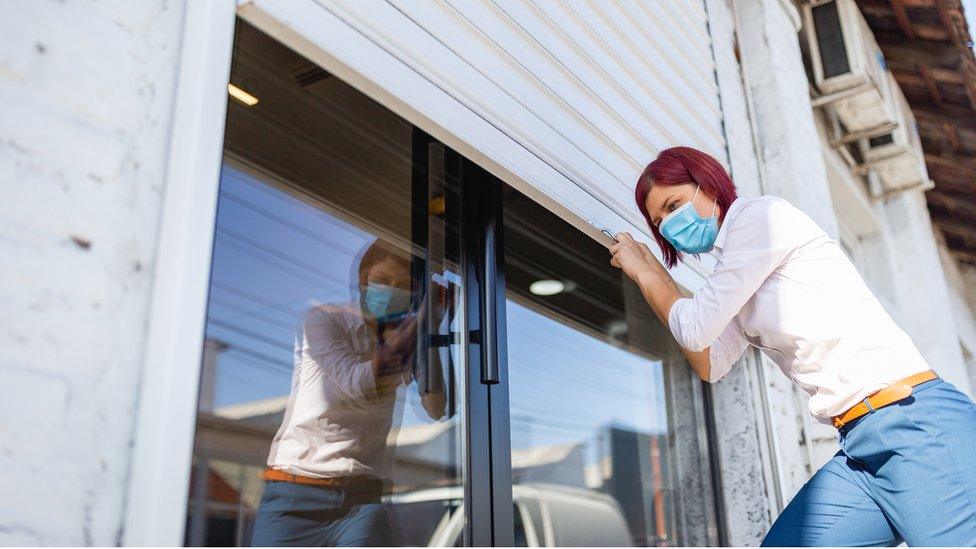Under-25s hit worst as unemployment rises again
- Published
- comments

Keighlie Holt has not been able to work as a hairdresser and is retraining as a social media analyst
The unemployment rate has risen to its highest level in almost five years, with younger workers bearing the brunt of the job losses, official figures show.
The UK's jobless rate rose to 5.1% in the three months to December, external, with the number of people on company payrolls down 726,000 on pre-pandemic levels.
Almost three-fifths of these were younger than 25 years.
There were, however, some early signs of stabilisation in the jobs market.
The Office for National Statistics (ONS) said there was a small increase in the numbers of employees paid through payroll over the past couple of months, with 83,000 more people on the books in January compared with the previous month.
Average pay rose, too, by 4.7% including bonuses, although this was said to be a statistical quirk rather than a sign of lasting wage growth,
Statisticians said this was partly because of the disproportionate fall in the number of young, typically lower-paid workers. Adjusting for this, the ONS said underlying wage growth was "likely to be under 3%".
The ONS said 1.74 million people were unemployed in the October to December period, up 454,000 from the same quarter in 2019.
Furlough uncertainty
"Our survey shows that the unemployment rate has had the biggest annual rise since the financial crisis," said Jonathan Athow, ONS deputy national statistician for economic statistics.
"However, the proportion of people who are neither working nor looking for work has stabilised after rising sharply at the start of the pandemic, with many people who lost their jobs early on having now started looking for work."
Despite this, Mr Athow told the BBC's Today programme that the true underlying picture was not yet clear due to the high number of people still on furlough.
He said figures from early February suggested that about six million people were currently furloughed, adding: "There is a huge amount of uncertainty about what will happen to them when that scheme ends."
The Bank of England is forecasting that the unemployment rate will rise sharply, peaking at an estimated 7.8% later in the year.
'I wasn't going anywhere'
Keighlie Holt is a 20 year-old hairdresser from Blackpool, which has the highest youth unemployment in the UK. The impact of covid on her industry means she has has only worked for a fraction of the year.
She is now retraining as a social media analyst: "Last year I did what felt like, literally, three months of work.
"December wasn't anywhere near what it's like on any other December, that's normally our busiest time. And then it just wasn't going to go back to normal. No one wanted to get their hair done. No, I wasn't going anywhere."

Why has pay risen?

Today's labour market figures show that pay was up by an average of nearly 5% compared with a year ago - a much bigger pay rise than has been typical for most of the past decade.
If you're an employee you may not recognise that figure as anywhere near your own pay rise; a big part of it is because it is an average figure.
If you remove nearly 730,000 workers from employers' payrolls, many of whom have been in low-paid occupations such as accommodation and food services - where pay rises have been modest or non-existent - then it flatters the average.
However, even allowing for those "compositional" effects, the Office for National Statistics estimates that there was still pay growth of 3% overall - far more than inflation at 0.7%.
And in some sectors it was better than that: according to the ONS, pay in health and social work rose by an average of 6.2% - some modest compensation, perhaps, for the risks those workers have been taking.


The Chancellor, Rishi Sunak, is preparing for next week's Budget, which is expected to set out further plans to help the labour market.
"I know how incredibly tough the past year has been for everyone, and every job lost is a personal tragedy," Mr Sunak said.
"At the Budget next week I will set out the next stage of our Plan for Jobs, and the support we'll provide through the remainder of the pandemic and our recovery."
Labour's shadow chancellor, Anneliese Dodds, claimed some businesses were "throwing in the towel" because the government was taking too long to confirm what business support would be available to them over the next six months.
Ms Dodds criticised the government for announcing its roadmap to ending lockdown "without the clarity of business support". She told the BBC ministers "may relish the theatre of budget" but it was "wrong to put decisions off until the Budget", as some businesses had decided to "give up".
- Published22 February 2021

- Published21 February 2021

- Published18 February 2021

- Published26 January 2021
